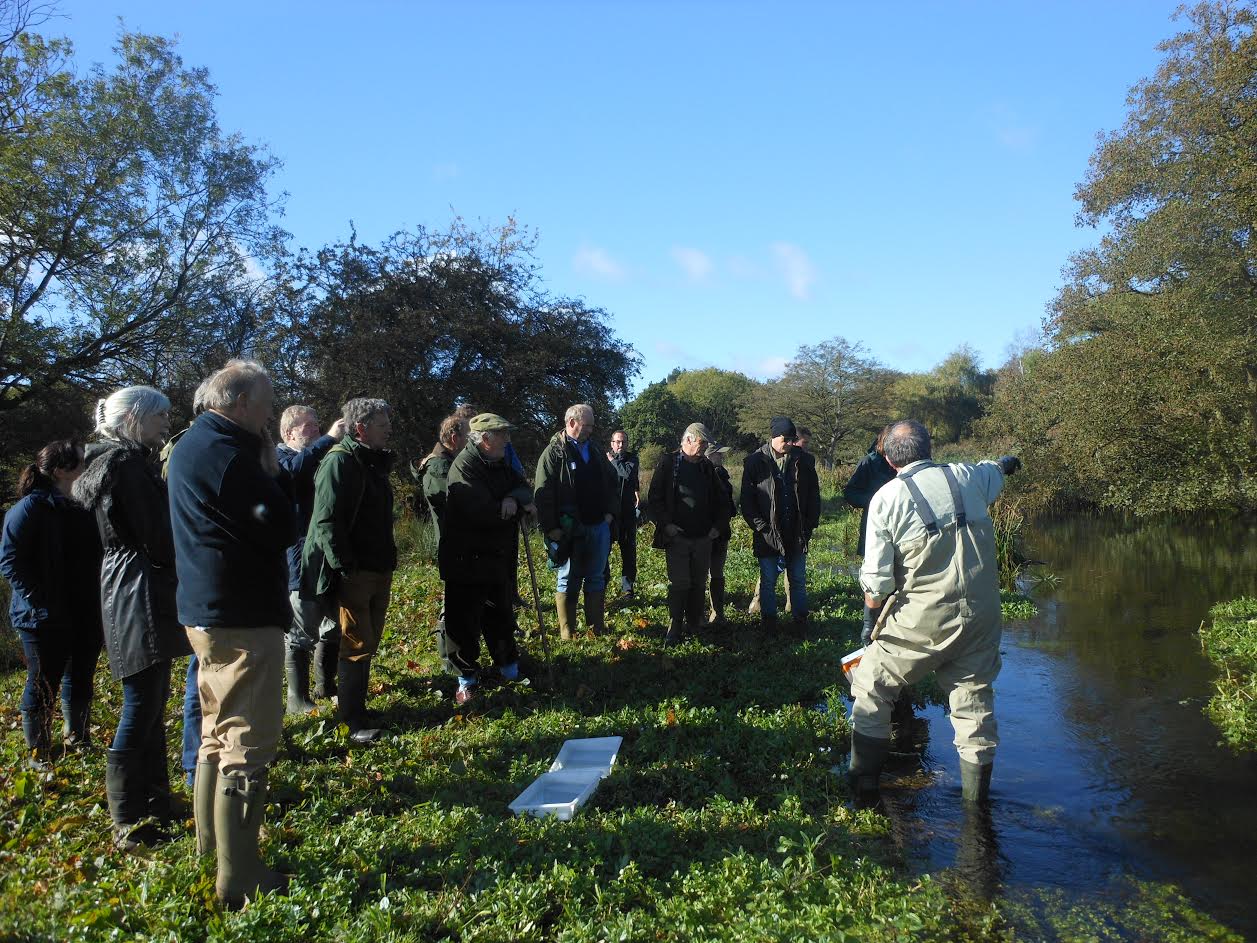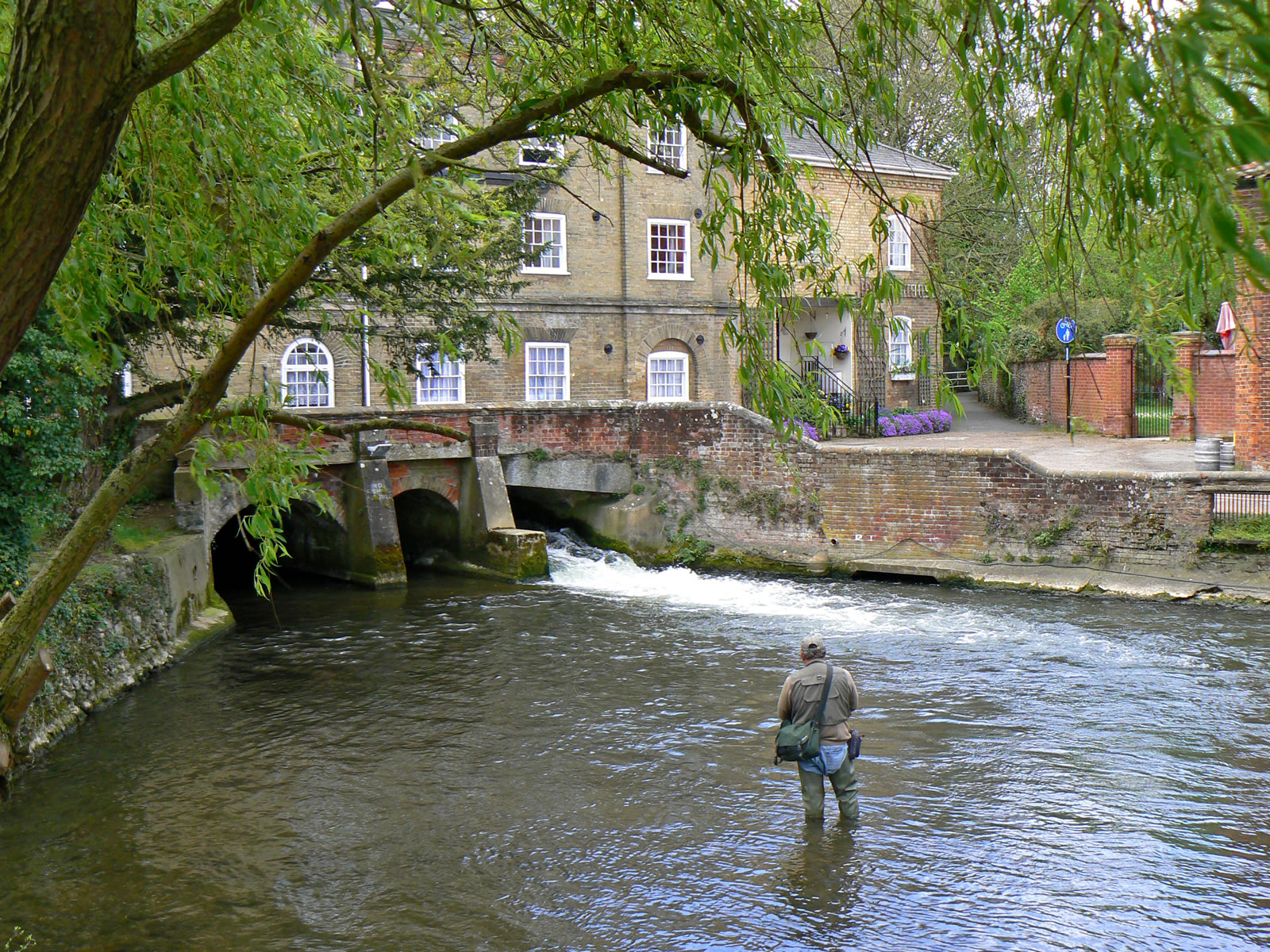
A group of sixteen farmers have vowed to form a cluster to protect a Norfolk river from further agricultural pollution.
The farmers gathered together last week with Salmon & Trout Conservation UK to discuss the results of the recent Riverfly Census on rivers across the country including the Wensum.
Explaining the results, Nick Measham, from Salmon & Trout Conservation and author of the Census said, said the Census revealed that the river Wensum’s fly life is "suffering as a result of phosphorous and sediment pollution mostly as a result of run-off from agricultural activities."
"It was very disappointing that the River Wensum, which is one of the UK’s four highly protecting chalkstreams fared so badly in the survey,” Mr Measham said.
Riverflies and other invertebrates are excellent indicators of the underlying ecological condition of rivers because different species of invertebrates demonstrate different tolerances to the various forms of stress from pollution.
Nick Measham explains: “England’s 200 or so chalkstreams form about 85% of the world’s total stock of this richly diverse and complex habitat. Almost all of them are in a dismal state of decline.
“Plants, insects, fish, mammals and bird-life are suffering as a result of the loss of fly life, which plays a crucial role in the aquatic food chain. Basically lose your fly life and you will lose many other important species too.”

Farmers working on a landscape-scale to protect
However, all is not lost for the Wensum.
Last year, Natural England established a Facilitation Fund, which is a scheme that aims to encourage farmers to form a Farmer Cluster and to work together on a landscape-scale to protect the fragile wetland habitats surrounding the Wensum.
The sixteen farmers that have formed the Farmer Cluster on the Wensum catchment. They have been working collaboratively for the past year to focus their conservation efforts on developing landscape scale projects that will help protect the precious river environment from potential impacts from farming activities.
Heidi Smith from the Farming and Wildlife Advisory Group (FWAG) said: “This is a really exciting project and all the farmers are totally committed to working together to achieve results.
“Although the results of the Riverfly Census were a shock, we feel that over time, the many innovations being implemented by the group on a large-scale and across the catchment will start to turn the river environment around.
“The project has only been going for a year and so we look forward to S&TC UK’s next round of monitoring to see what improvements have taken place.”
Wide-range of environment-friendly methods
The sixteen farms involved in the project are quite diverse and range from a small organic grazier to larger concerns that either have stock or grow crops such as oil seed rape, sugar beet or barley.
Many of those within the Farmer Cluster are either in a Stewardship Scheme such as the Higher Level Scheme or the Entry Level Scheme.
To counteract some of the negative impacts along the river catchment from farming activities, the group are implementing a wide range of measures such as growing buffer strips, ploughing across fields, tramline disruption, planting cover crops and growing nitrogen fixing legumes.
Over time, the combined efforts of all the farmers should start to reduce the amount of soil being lost from the land and generally improve soil health while protecting the river.
Nick Measham said: “Meeting the Farmer Cluster group is a wonderful opportunity to share knowledge and best practice to help make a difference.
“It is hugely apparent that these farmers are totally committed 100 per cent to the future conservation of the Wensum and each one of them is passionate about doing a great job.
“We are currently repeating our Riverfly Census on the Wensum and although it is going to take time to get it back into pristine condition, I am sure that the dedication of the Wensum Farmer Cluster will ensure that this will be the case over the next few years.”
